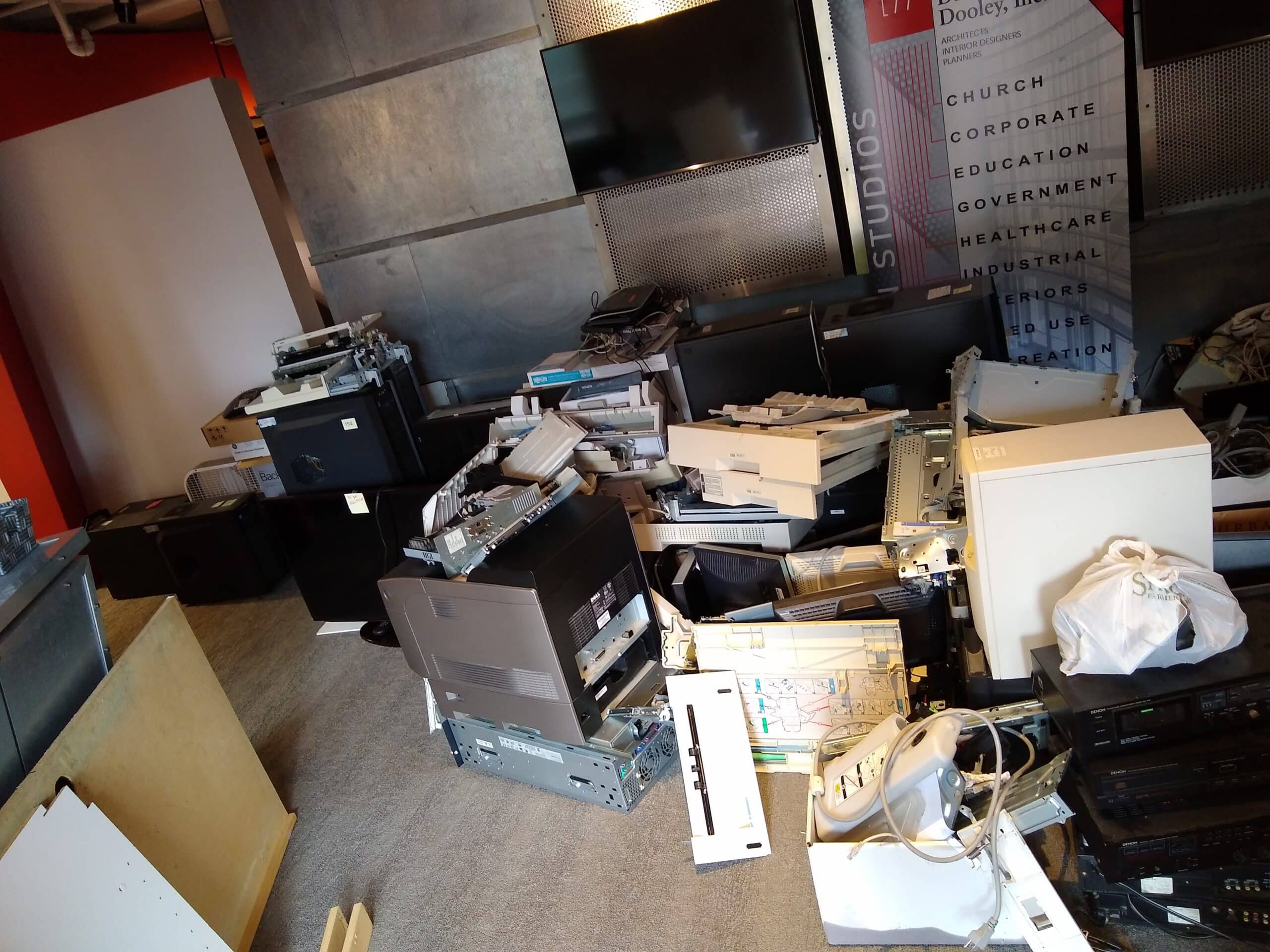Electronics recycling is the process of recovering useful materials from electronic devices, such as computers, phones, and monitors and preventing their disposal in landfills. Recycling electronics is important because these devices contain valuable resources such as copper, gold, and silver, as well as hazardous materials that can harm the environment if not disposed of properly.
Read on as we learn more about electronic recycling, what can and can’t be recycled, and why it matters.

Electronics Recycling: What You Can Recycle
Electronic devices are complex and contain many different materials. Not all of these materials can be recycled, but here are some of the items that can:
Cellphones
Cellphones contain valuable metals such as gold, silver, and copper that can be extracted and reused. They also contain hazardous materials such as lead and mercury, which can be harmful if not disposed of properly. Recycling cellphones prevents these hazardous materials from ending up in landfills and polluting the environment.
Computers
Computers contain a variety of materials that can be recycled, including metals such as aluminum, copper, and gold, as well as plastic and glass. Recycling computers also prevents hazardous materials such as lead, cadmium, and mercury from contaminating the environment.
Batteries
Batteries contain valuable metals such as lithium, cobalt, and nickel, as well as hazardous materials such as lead and mercury. Recycling batteries prevents these hazardous materials from contaminating the environment.
Electronics Recycling: What You Can’t Recycle
While many electronic devices can be recycled, there are some items that cannot be recycled. Here are some examples:
Light bulbs
Light bulbs cannot be recycled because they contain a variety of materials, including glass, metal, and plastic, that are difficult to separate. However, some types of light bulbs, such as compact fluorescent bulbs, can be recycled at certain recycling centers.
Smoke detectors
Smoke detectors contain a small amount of radioactive material that cannot be recycled. However, some companies offer mail-in recycling programs for smoke detectors.
Microwaves
Microwaves contain a variety of materials that are difficult to recycle, including plastic, metal, and electronic components. However, some recycling centers may accept microwaves for a fee.
Why It Matters
Recycling electronics is important for several reasons:
Environmental Impact
Electronics contain hazardous materials such as lead, mercury, and cadmium that can harm the environment if not disposed of properly. Recycling electronics prevents these materials from ending up in landfills and polluting the environment.
Resource Conservation
Electronics contain valuable resources such as copper, gold, and silver that can be extracted and reused. Recycling electronics conserves these resources and reduces the need for mining new materials.
Energy Savings
Recycling electronics requires less energy than mining and refining new materials. By recycling electronics, we can conserve energy and reduce our carbon footprint.
Job creation
Recycling electronics creates jobs in the recycling industry, which can help boost local economies.
Conclusion
Electronics recycling is an important process that helps conserve resources, prevent environmental pollution, and create jobs. While many electronic devices can be recycled, there are some items that cannot be recycled. It’s important to check with your local recycling center to see what items they accept. By recycling electronics, we can make a positive impact on the environment and our communities.
Are you interested in computer recycling? Beyond Surplus is here to offer professional services to help you properly dispose of and recycle electronic waste. Schedule a pick-up or a drop-off with us today!


